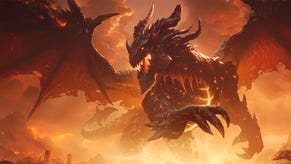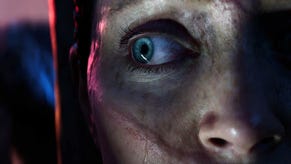Stark Contrasts
Activision celebrates record-breaking success, but EA's long-term plans may make more sense.
Published as part of our sister-site GamesIndustry.biz' widely-read weekly newsletter, the GamesIndustry.biz Editorial is a weekly dissection of one of the issues weighing on the minds of the people at the top of the games business. It appears on Eurogamer after it goes out to GI.biz newsletter subscribers.
Cutting 1500 jobs is not a news story that's ever going to be spun in a positive way, but for Electronic Arts, the timing couldn't possibly have been worse. The industry's former 800-pound gorilla, which has been looking less and less like the pack alpha for several years now, was forced to announce the wide-ranging job losses in a week when the contrast is starker than ever.
As EA's staff nervously wait to discover if they need to pack up their desks, rival Activision Blizzard is popping champagne corks over the unprecedented success of Modern Warfare 2, a game which has taken home around half of the worldwide gross of record-breaking movie Titanic - in a single day.
What is happening at EA is the latest chapter in a long-run and complex narrative, with its roots way back in the middle of the last console generation. For years, the company has had a serious problem right at the heart of its financial situation. Turnover rose slowly or not at all for several years, while costs escalated. Profits and margins were squeezed. Even while EA still dominated the boxed games market, it found it increasingly difficult to actually make decent money.
In part, this problem was attributable to EA's internal structure. Big, bloated and inefficient, the company suffered from an excess of management and unhealthy internal politics which implicitly encouraged middle managers to build and jealously protect fiefdoms within the company, rather than working collaboratively.
EA's scale became a millstone rather than a competitive advantage, with the wheel being reinvented time and time again by different teams. When top management occasionally intervened, frustrated by the lack of progress on technology and knowledge sharing across the company, their interventions tended to be poorly chosen, lumbering the company with weak technologies chosen for political rather than technical reasons.
Meanwhile, the company found itself increasingly slipping away from the dream of being the new Disney which former CEO Larry Probst had talked about so enthusiastically in interviews. Its studios were embroiled in the year-on-year race to push licensed IP out the door, and self-owned IP development ground to a halt.
A development culture which gave tacit approval to the ill-advised "throw more people at the problem" approach meant that teams working on new IP were regularly cannibalised in order to shove licensed games out the door in time, which did nothing either for the quality of the licensed titles or for EA's own storehouse of IP. Worse again, studio acquisitions - which could have shored up the company's ability to generate IP - were uniformly disastrous, with EA's management unable or unwilling to leave the creative teams alone, and slaughtering whole processions of golden egg laying geese.
This is the company and the corporate culture which faced John Riccitiello when he rejoined the firm in 2007, and each of his changes he has made since then - including this week's massive restructuring announcement - can be seen as part of a continuing narrative in which he fights to reposition a company whose industrial inertia shrugs off any attempt at subtle change.







.png?width=291&height=164&fit=crop&quality=80&format=jpg&auto=webp)
